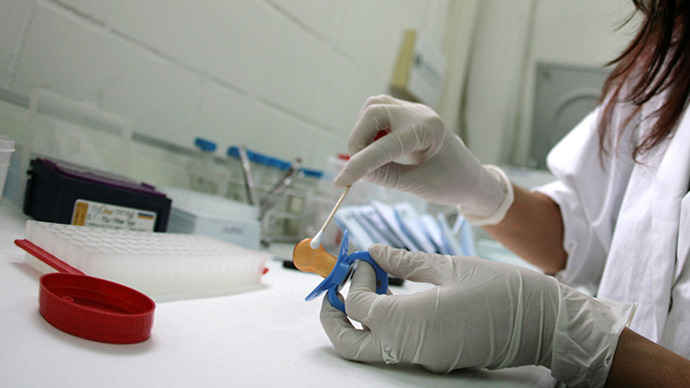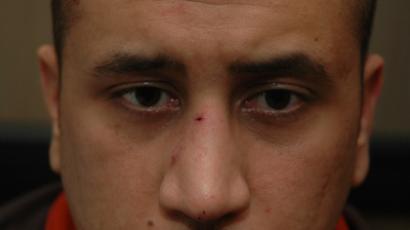‘Like hardened criminals’: UK police sample DNA from 120,000 children in 2 years

British police collected the DNA of more than 120,000 children in just two years, with a thousand of them aged 10 at the time of the swab. Most of the youngsters have committed no punishable crime, but their DNA data will be stored for years.
“It is disappointing to see valuable crime-fighting resources being wasted on taking DNA samples from thousands of innocent children while serious offenses go undetected,” said Francis Crook, chief executive of the legal activists Howard League for Penal Reform.
The group was able to obtain the data for 2010 and 2011 with a Freedom of Information request. Other than the overall numbers, the biggest surprise was the age spread – showing that children aged 13 were almost as likely to be recorded in the police database as 17-year-olds.
Seven out of 10 swabbed under-18s were boys.
Most of the youngsters had been taken into police stations pending investigation, or as a caution for minor offences. The vast majority were never charged with recordable crimes.
“Children who get into trouble with the police are usually just up to mischief. Treating so many like hardened criminals by taking their DNA seems excessive,” said Crook.
A record of anyone’s DNA, or unique genetic code, acts as a more complex version of a fingerprint, and allows any piece of physical evidence to be traced a potential perpetrator, victim or witness. The test usually involves taking a swab from the youngster’s mouth.
In total, the UK is storing over 1.2 million DNA samples taken
from people when they were underage – as part of a DNA database
that covers 6 million people, a tenth of the population, and one of
the highest ratios in the world.
Amanda Cooper, the leading DNA expert for the Association of Chief Police Officers, said the sheer numbers concealed a more complex picture – in which the children were not always suspects.
"These may be when a child has been a victim of crime, when police would take DNA to confirm an incident took place and check whether it can be linked to a perpetrator. Others will be as part of criminal investigation where a child is the suspect. DNA samples are also taken to conduct criminal paternity tests as part of sexual offence investigations."
The unchecked growth of the country’s DNA database has been curbed with the Protection of Freedoms Act, which comes into force later this year.
"DNA evidence is a crucial tool in the fight against crime, but it must be used proportionately,” said a Home Office statement in light of the revelations.
"Through the Protection of Freedoms Act we are restoring common sense to the system by ensuring only those convicted of a criminal offence will have their DNA retained indefinitely."
Now, only under-18s convicted of serious crimes or at least two minor offenses will have their DNA preserved indefinitely, while those cleared of serious charges can have their samples stored in the database for five years.
But the Howard League for Penal Reform says this does not remove the problem of unnecessary tests, or personal freedom violations.
“We welcome the government’s decision to stop storing
innocent people’s DNA indefinitely, but it remains unclear how this
will affect the number of children having their DNA taken
needlessly,” said Crook.














